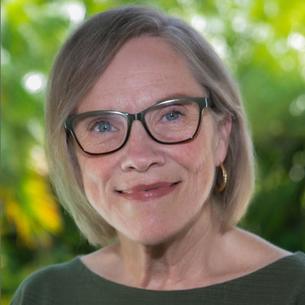Mindful Monday: Meet Mary Beth Stern

Mary Beth Stern
Certified MBSR Instructor
Certified addictions counselor & mindfulness-based relapse prevention training
Qualified behavior change community facilitator
What course do you teach at Mindfulness and Health Institute?
What drew you to mindfulness?
I think of my adult life in chapters:
I worked in finance on a trading desk with the noise, the chaos and the stress and all the substances that made that life bearable… and at times even fun.
The market crashed and in a way, so did I. I was living a lifestyle that was glitzy, exciting, and ultimately lonely and unsustainable. With a lot of support, I got sober, stayed in finance for another year or so, saving money and getting the training I needed to do work more aligned with my values. I became a Certified Addictions Counselor.
Sobriety set the conditions for rediscovering skills I had known as a child: that there was something more.. I was not just my thoughts and body, and when that part was quiet and still, I got a glimpse into a part of me that was real but elusive. Mindfulness-Based Relapse Prevention (MBRP) and Mindfulness-Based Stress Reduction (MBSR) training reawakened that awareness. I have been facilitating MBRP, MBSR, and Science and Practice of Habit Change trainings for nearly 15 years, meditating for 20.
What would you like potential students to know about you?
When I stopped using alcohol and drugs, my life improved. I spent many years sober, but not particularly mindful. My reactivity shifted to what Dr. Judson Brewer* would call the “everyday addictions”: food, shopping, sex, technology.. all the other flavors of turning away from moments that are difficult to feel. “Waking up” to awareness, supported by a variety of teacher trainings I’ve engaged in, shifted my life in recovery to a new level of richness with a capacity to be present for all the moments, no matter what they may hold.
*Dr. Brewer’s research on habit change is the basis of the course Science and Practice of Habit Change
What do you enjoy about teaching Science and Practice of Habit Change?
I enjoy the accessibility and appeal of this course for a wide variety of participants. One needn’t be a monk or a meditator to benefit from this class. It may be their fiftieth awareness training or their first.
What makes Science and Practice of Habit Change especially impactful for participants?
This course is unique: It is the intersection of the latest evidenced-based neuroscience with ancient time-tested wisdom practices. With the advancement of technology such as fMRI machines, we know much more about habits and the brain than even 15 years ago. In my experience teaching this class, the hard science is a strong motivator to encourage exploration of simple, short practices to help step out of behaviors that are no longer serving.
Participants come to learn from their own direct experience that lasting behavior change is not achieved with harsh self-discipline, nor intense effort or judgment but instead with intention, curiosity, and kindness. This is often the greatest surprise. Although many habits we develop over time can have serious consequences, this work is best approached through a lighter, open-hearted lens. We can actually have fun experiencing the group discoveries, challenges, and even learn from the setbacks!
In what ways does Science and Practice of Habit Change uniquely support someone's practice?
Whether one is coming to this course with an established mindfulness practice of some sort OR if this is their first mindfulness training of any kind, this class is, by design, uniquely tailored to one’s own individual experiences.
Most often, participants come with one (or several) habits that they wish to change. Often other habits are discovered once the training gets underway that had previously gone unnoticed. The course is dynamic and alive and participants are invited to explore the moment-to-moment felt experience of their habitual behavior, effectively turning that awareness into personalized data. So, in essence, every student creates their own unique curriculum.
For instance, if one student finds, through the inquiry suggested in the training, that the behavior of a particular habit is not really causing any problems, they may decide that it may not be something that needs to be changed at this juncture. On the other hand, another might realize, through close attention, that one particular habit is a more significant source of suffering than they realized. These insights don’t come from external instruction but instead arise naturally from mindful observation. This unique unfolding process is central to the course, allowing growth to emerge organically from each participant’s direct experience.
How have the tools, resources, or practices from Science and Practice of Habit Change influenced your own life?
This work has transformed how I meet the most challenging moments in my life. My earlier mindfulness trainings deepened my presence and enriched everyday experiences. Science and Practice of Habit Change took that foundation and built on it, inviting a new level of precision: laser-like awareness directed at the patterns that cause my most intense suffering.
It’s like turning to the Universe and saying—sometimes bravely, sometimes shakily—“Okay, bring it!” And then meeting those moments not as problems to fix, but as opportunities to learn. Over time, this work has shifted from something I understand conceptually to something I know in my bones. That embodied knowing builds confidence (faith, really) in the part of me that’s aligned with my highest intentions. I’m no longer on autopilot. I get to be the one writing the story. And what I love most: it doesn’t take forever to start seeing the difference.


0 comments
Leave a comment
Please log in or register to post a comment